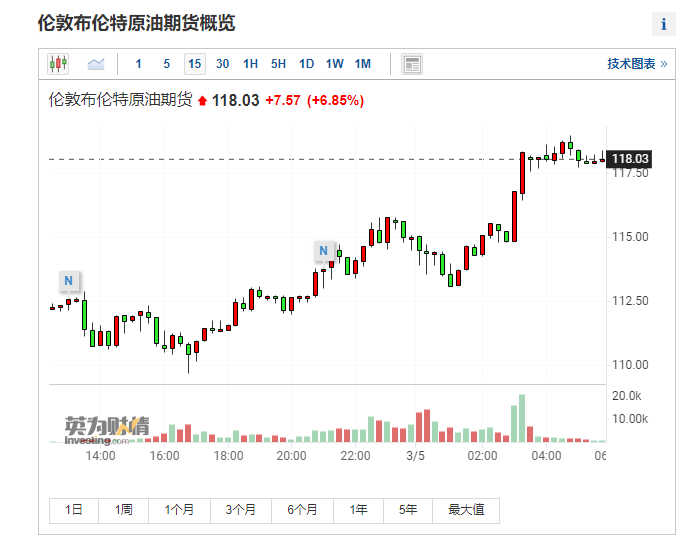The situation in Russia and Ukraine affects nerves! Wall Street’s big banks have raised oil price forecasts, Goldman Sachs gives $150 “warning line”
Financial Associated Press (Shanghai, edited by Huang Junzhi),Wall Street banks such as Goldman Sachs Group Inc., Morgan Stanley and JPMorgan Chase & Co., as the Russia-Ukraine crisis roiled commodity markets and put inflationary pressure on governments Both raised their oil price forecasts as they anticipated possible supply disruptions.
The rally that propelled oil prices to near decade highs shows no sign of abating, according to a new media survey. The 35 economists and analysts surveyed expect Brent to average around $91.15 a barrel this year, up from a January forecast of $79.16. In addition, U.S. crude oil prices are expected to average $87.68 in 2022, compared to an average of $76.23 in January.
JPMorganBrent could hit $185 a barrel by the end of the year if supply disruptions from Russia continue, it wrote in the latest report. Brent crude oil futures have been approaching $120 after Western countries imposed sanctions on Russia. JPMorgan analysts said 66% of Russian oil is currently struggling to find a buyer.
However, JPMorgan still gave an average oil price of $98 this year and maintained its forecast for Brent crude oil prices, which is $110 per barrel in the second quarter, $100 in the third quarter and $90 in the fourth quarter.
Goldman SachsIt also raised its one-month Brent price forecast to $115 a barrel from $95. Analysts at the bank pointed out that to offset Russia’s loss of supply in the global market, oil demand needs to be reduced by up to 4 million barrels.
Damien Courvalin, head of energy research at Goldman Sachs, said on Friday that if Russian crude continues to be “unloved,” oil prices could hit $150 a barrel in the next three months. He warned that the upside for oil was “significant” and that demand destruction could start once it breached $150 a barrel.
Morgan StanleyIt has also raised its forecast for Brent to $110 a barrel from $100. The firm expects crude oil prices to reach that level in the second quarter of 2022, with a bullish price target of $125 a barrel. Morgan Stanley said the oil market is already tight, and in this case even a small disruption can have a huge impact on prices.
Bank of AmericaIt was previously expected that by the end of June 2022, the price of Brent crude oil will reach $120 per barrel.
NORD Landbk“Risk premiums are soaring,” and OPEC and its allies cannot adequately fill the gap, said Christian Reuter, senior director of industry strategy. ”
Stratas Advisors“If the U.S. and its allies take more aggressive steps to reduce Russian oil exports, oil prices could soar to $150 a barrel or more, as there isn’t enough spare capacity to offset the sharp drop in Russian exports,” said President John Paisie. ”
As for when the supply shock will ease, DBS BankChief energy analyst Suvro Sarkar said there could be “some normalization in the second half of 2022, but probably not to pre-conflict levels.”
Paisie also warned that “the biggest downside risk stems from an economic slowdown, the unintended consequence of sanctions and higher energy prices, combined with the global economy still dealing with supply chain issues.”Return to Sohu, see more
Editor:
Statement: The opinions of this article only represent the author himself, Sohu is an information publishing platform, and Sohu only provides information storage space services.
